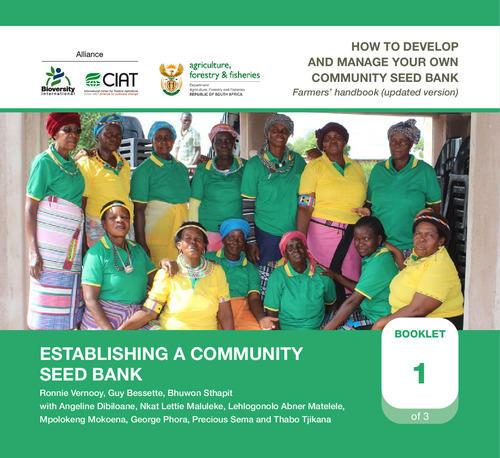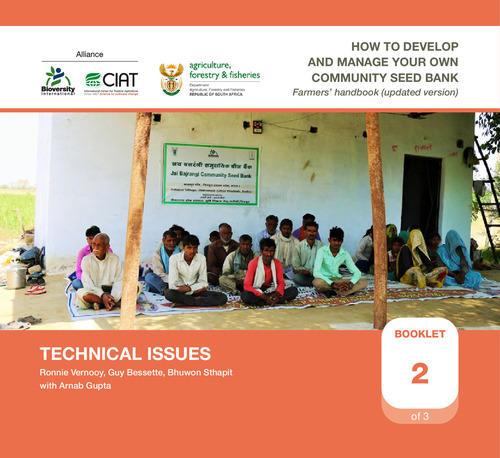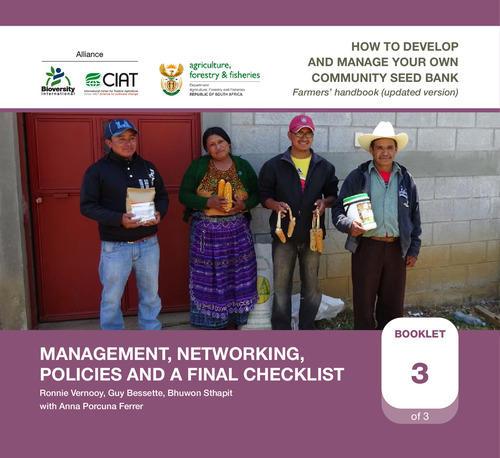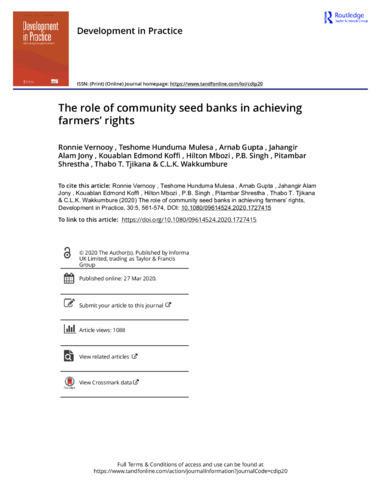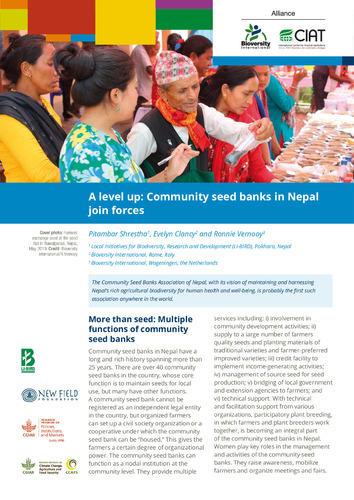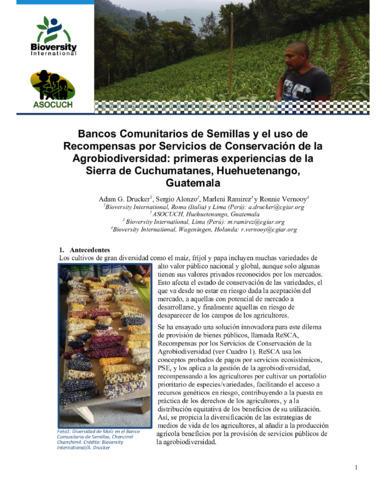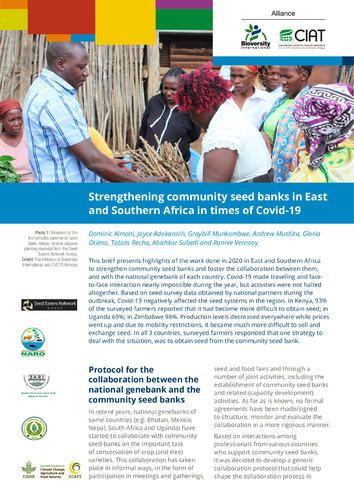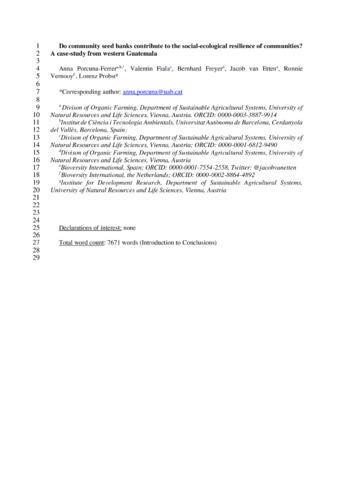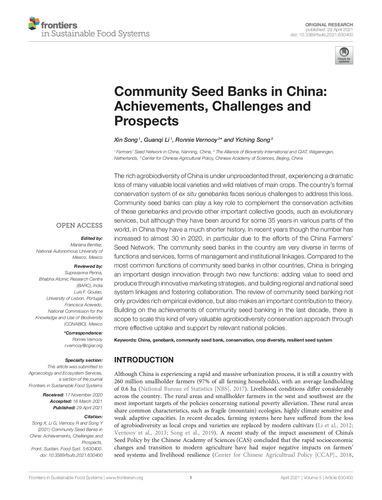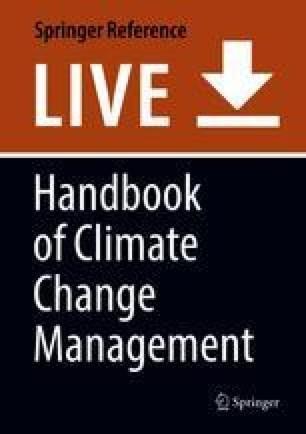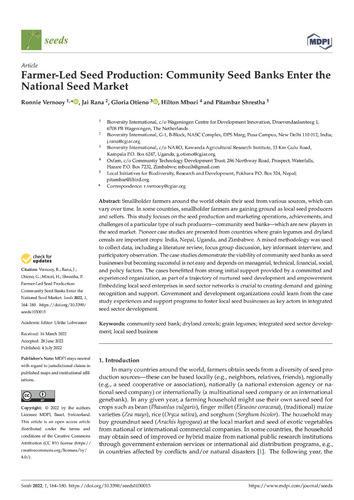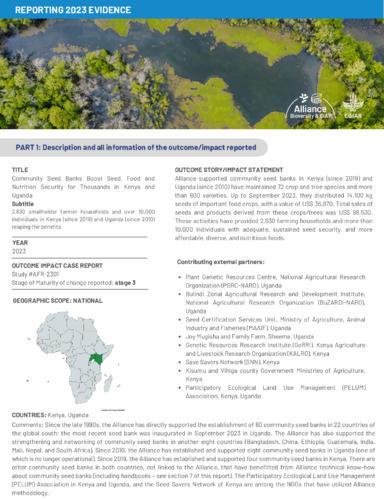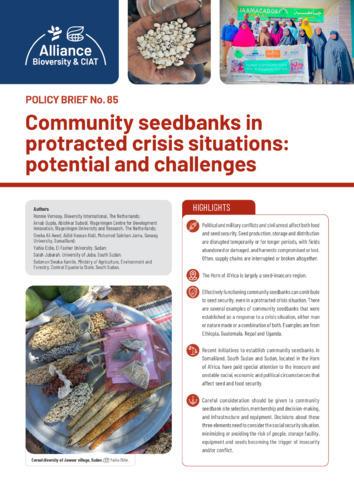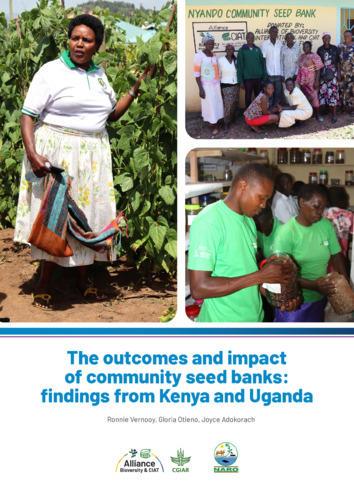Community Seedbank Training: Handbooks for Facilitators and Farmers
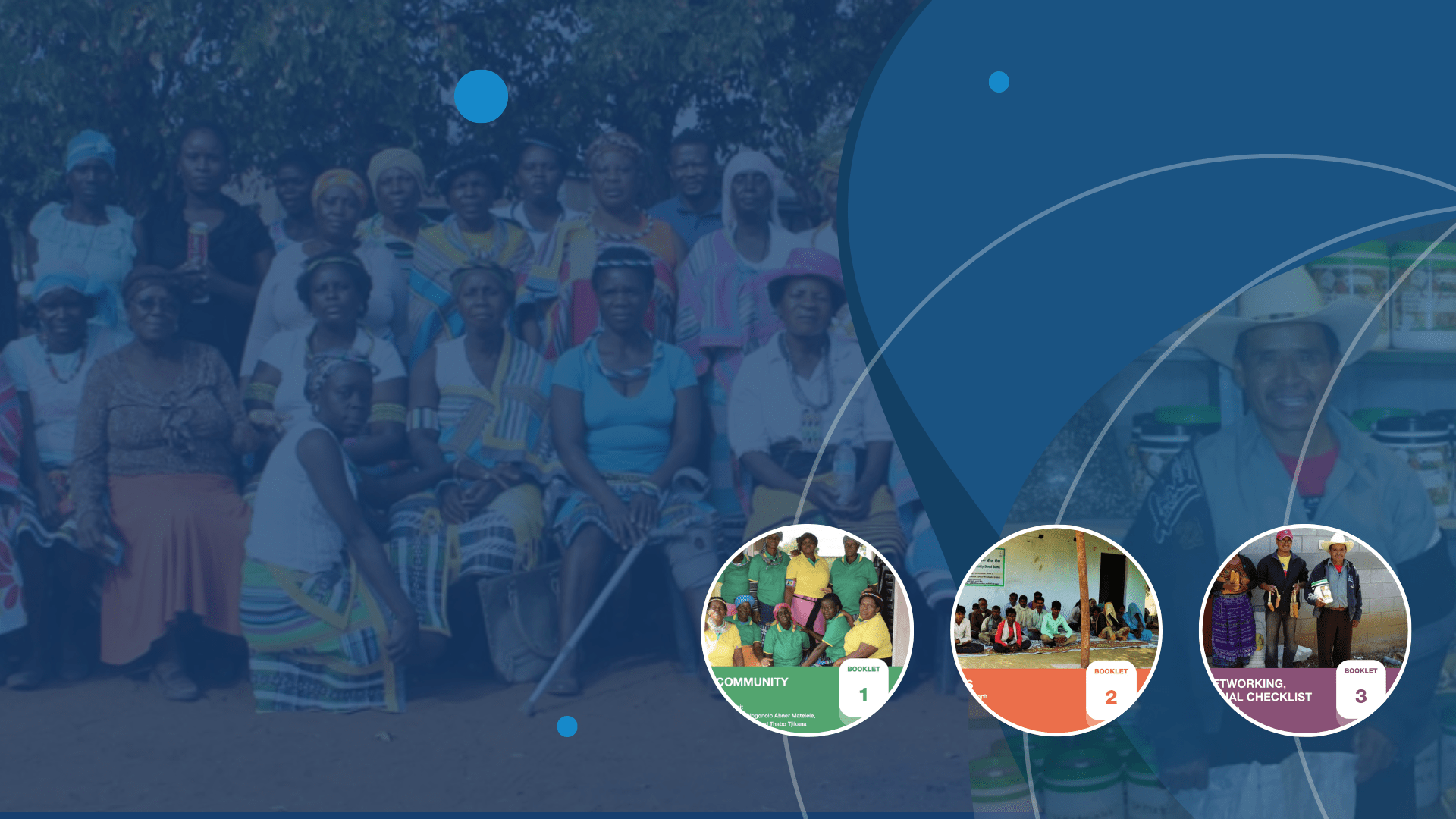
Over three decades, international and national organizations have supported community seed banks worldwide with technical and financial assistance. First published in 2017 and updated in 2020, this handbook serves as a practical guide for facilitators engaged in seed conservation and sustainable use, filling crucial knowledge gaps and advancing research and capacity development.
The handbook is structured into nine modules and promotes a participatory learning approach, where facilitators and learners interact actively, make use of their experience, and learn together, drawing on practical case studies to enrich their understanding and application of agricultural and rural development concepts. Lecturing is kept to a minimum.
Translated into Chinese, French, Portuguese, Spanish, and Russian, the handbook supports a global audience of facilitators.
French: https://cgspace.cgiar.org/handle/10568/96299
Russian: https://cgspace.cgiar.org/handle/10568/96310
Spanish: https://cgspace.cgiar.org/handle/10568/96304
It also includes three companion booklets for farmers, featuring simple texts and large photographs covering topics such as establishing a community seed bank, technical issues, and management, networking, and policies:
- Establishing a community seedbank
- Technical issues
- Management, networking, policies and a final checklist
The companion booklets are available in English, French, Portuguese, and Spanish.
It also has been translated to 10 languages spoken in South Sudan: Arabic, Bari, Collo, Dinka, Ma’di, Muro, ‘Ndogo, Nuer, Otuho, Zandi. Other translations include Ateso, Azindhi, Chinese, Dinka, Luo.
They are available on CGSpace and soon on the South Sudan Seed Hub website.
In what context is this tool useful?
This handbook is intended for people working directly with women and men farmers, who are motivated to set up a community seedbank or who want to strengthen the operations of a community seedbank that already exists. They may be NGO staff, researchers, plant genetic resource center (genebank) employees, or government extension agents who want to become more knowledgeable about the concept and practice of community seedbanks, who are leading a process to establish one or more community seedbanks, and/or who are conducting training sessions for community members about the concept and practice of a community seedbank.
The handbook is used in an annual short courses about the conservation and sustainable use of plant genetic resources and resilient seed systems that the Alliance co-organizes with the Wageningen Centre for Development Innovations. These are courses for professionals in public, civil, research, education and/or development organisations, with an interest in agriculture, agrobiodiversity, seeds and food security.
Results achieved
These handbooks had helped farmers to organize Community seed banks around the world to conserve, restore, revitalise, strengthen, and improve plant genetic resources for food and agriculture, especially, but not solely, focusing on local varieties of crops. Community seed banks are helping farmers and communities regain, maintain, and increase their control over the seeds they use. Many of them have led to stronger cooperation among and between farmers and with others, such as plant breeders, other agricultural researchers, and gene bank managers, who are involved in the conservation and sustainable use of agricultural biodiversity.
Many case studies from around the world are presented in the books ‘Community seed banks: origins, evolution and prospects’ and ‘The role of community seed banks in achieving farmers’ rights’.
Since their publication in 2020, the handbooks have been used in eight international training courses on resilient seed systems offered by the Wageningen Center for Development Innovation-Wageningen University and Research in collaboration with the Alliance of Bioversity International and CIAT, which were attended by (agricultural) professionals from around the world. Total trainees: 170.
In 2023, an Outcome-Impact study of community seed banks established and supported by the Alliance in Kenya and Uganda was carried out. Community seed banks in the two countries were supported by the Alliance and maintained 72 crop and tree species and more than 600 varieties. A total of 14,100 kg of seed of important food crops, with a value of USD $36,870, was distributed. Total sales of seeds and products derived from the crops/trees conserved amounted to USD $98,530. Through these activities, seed security and more affordable, diverse, and nutritious foods were provided to 2,630 farming households.
Alliance staff and national partners have used / are planning to use the handbooks for training activities with professionals and farmers in China, Ethiopia, Ghana, Kenya, Malawi, Mozambique, Peru, Poland, Uganda, South Sudan, South Africa, Somaliland, Sudan, Tajikistan, Uzbekistan, Zambia and Zimbabwe. Total reach estimated: more than 10,000.
Next steps/variations
Community Seed/Field Bank for Roots, Tubers, and Bananas
While community seed banks usually conserve seeds of grains, oil crops, pulses, and vegetables, little is known about their inclusion of roots, tubers, and bananas (RTBs). To address this, the Alliance, in collaboration with the NUS Network of Ghana, is piloting a new concept focusing on RTB crops as a variation of the original handbook. Unlike other crops, RTBs cannot be stored in conventional seed bank facilities. Our innovative solution in Ghana combines a storage facility with multiple on-farm “seed” fields, forming a comprehensive community field bank.
New Short Courses for Somaliland and South Sudan on Community Seed Bank and Seed Lab Management
In the Horn of Africa, agricultural professionals have been trained in resilient seed systems, focusing on community seed banks and seed labs. Training included study tours to Kenya and Uganda, and basic seed lab facilities were established at Sanaag University and the University of Burao in Somaliland with NUFFIC support. To further enhance these capabilities, two new short courses were developed for university-level delivery as part of the “Entrepreneurship for food system resilience: Horticulture, seeds, fodder and data capabilities to improve FNS outcomes and generate income (E4FSR),” project. Coordinated by Wageningen Centre for Development Innovation and the Alliance, 8 new short courses were designed, two for South Sudan and Six for Somaliland, using a participatory approach and include both conceptual and practical elements.
Stories
How community seed banking strengthens adaptive capacity. Recha, J. 2017.
Cherishing crop diversity in a sea of sugarcane: inauguration of Uganda’s newest community seed bank. Adokorach, J., Otieno, G., Vernooy, R. 2023.
Promoting sustainable conservation and utilization of neglected and underutilized species in Ghana
Roles, Trends and Challenges of Neglected and Underutilized Species in Ghana

